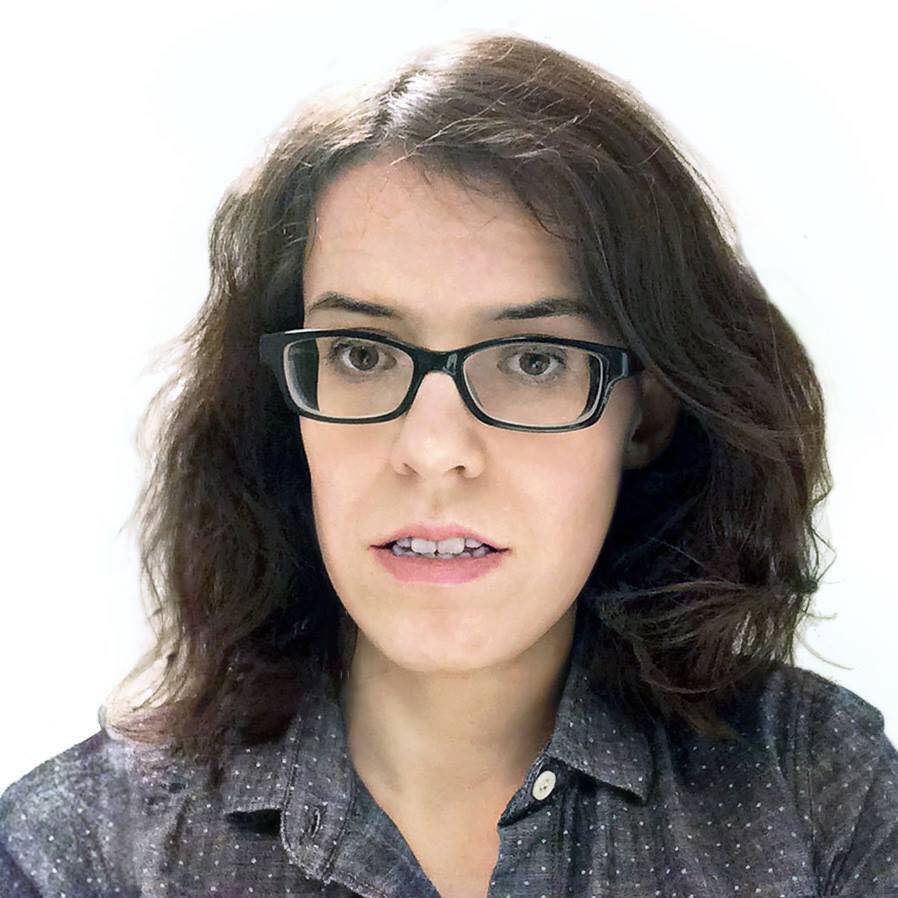

Nadia Asparouhova (@nayafia) is a writer and researcher. She is the author of Working in Public: The Making and Maintenance of Open Source Software (Stripe Press) and “Roads and Bridges: The Unseen Labor Behind Our Digital Infrastructure” (Ford Foundation). Her work has been supported by Protocol Labs, Emergent Ventures, and Schmidt Futures.

David Lang is an entrepreneur and writer. He is the executive director of the Experiment Foundation and the co-founder of multiple ocean technology companies.

Chenoe Hart is an architectural designer investigating how the internet relates to the built environment. She is interested in how digital technologies can transform architecture's historical condition of being a passive and location-based form of media. Her work includes writing and speculative design research, and it is informed by her interdisciplinary awareness of computer programming and her experiences with growing up in geographically diverse urban environments. She received a Bachelor of Arts in Architecture from Barnard College and a Master of Architecture from the University of California, Berkeley. She is located in New York.

Dorian Taylor is a self-taught practitioner who grew up in Canada in the dot-com 1.0 era. Just the right age at just the right time, he went from pushing pixels, to running servers, to programming infrastructure, to UX design, experiencing what it's like to build the Web from every angle while it was still possible to get one's arms around the entire thing. He now helps clients with strategic planning, developing situation awareness, and the occasional technical heavy lift.

Rafa explores and builds web3 collectives such as “DAOs” (crypto-native decentralized and autonomous organizations). Rafa is originally from Puerto Rico and now based in Berlin. Currently, he is supporting a large crypto-protocol with their decentralization efforts. In parallel, he is building Folklore, a self-funding, decentralised, and autonomous media network.

Kei explores how cultural narratives of technology shape what worlds we can build. From 2017 to 2022, she worked at Gnosis, building decentralized software infrastructure for the Ethereum ecosystem. Her current work centers on philosophy of technology, and her writing connects historical research with emerging technologies, including essays on internet native organizations, identity, and governance, as well as science-fiction.
Kara Kittel is a researcher and creative producer based in New York. She is a co-founder of Team Rolfes, an experimental 3D animation studio, and Other Internet Research Institute, an in-the-world lab investigating the psychological, political, and economic effects of digitalization. Her current research interests include collaborative authorship and informal coordination practices in online communities.
https://www.linkedin.com/in/kara-kittel-81a2598a/

Toby Shorin is a writer and technologist based in New York and the cofounder of Other Internet Research Institute. His research examines the moral genealogy of technological and cultural evolution.

Timber has worked on policy, technology, and workplace safety projects in the public sector for the past four years. He’s a recovering business student, but has a lingering interest in organizational design and management theory. In his spare time, Timber likes to lift weights and get nerdsniped by economics and epistemology topics. He is a vanguard Gen Z and grew up as a bit of a bush kid in Yukon Territory, Canada.

Drew Austin is a writer whose work explores the relationship between technology, culture, and cities. His newsletter, Kneeling Bus, investigates the complicated relationship between physical and digital space, inquiring how those spaces evolve together and how they interact. Drew is trained as an urban planner and has spent his career looking for ways to make transportation better, including the design of protocols like ridesharing. He lives in Brooklyn.

Sarah Friend is an artist and software developer currently based in Berlin, Germany. She was formerly the smart contract lead for Circles UBI, a community currency that aims to create a more equal distribution of wealth, as well as for Culturestake, a quadratic voting project targetting arts funding. In 2022, she was a visiting professor at The Cooper Union. Recent solo exhibitions include Off: Endgame, at Public Works Administration, New York, and Terraforming at Galerie Nagel Draxler in Berlin

Hi, I'm Angela Walch from San Antonio, Texas. I've been a crypto researcher & law prof for the last decade, & now am ready to explore my interests more broadly & creatively - w/o disciplinary boundaries or academic constraints. SOP seems like a great way to start! This summer I want to explore how we unconsciously participate in & pass along protocols -- even protocols that are arguably 'bad.' How do we escape bad protocols when we can't even see them? What can we do to make them visible?